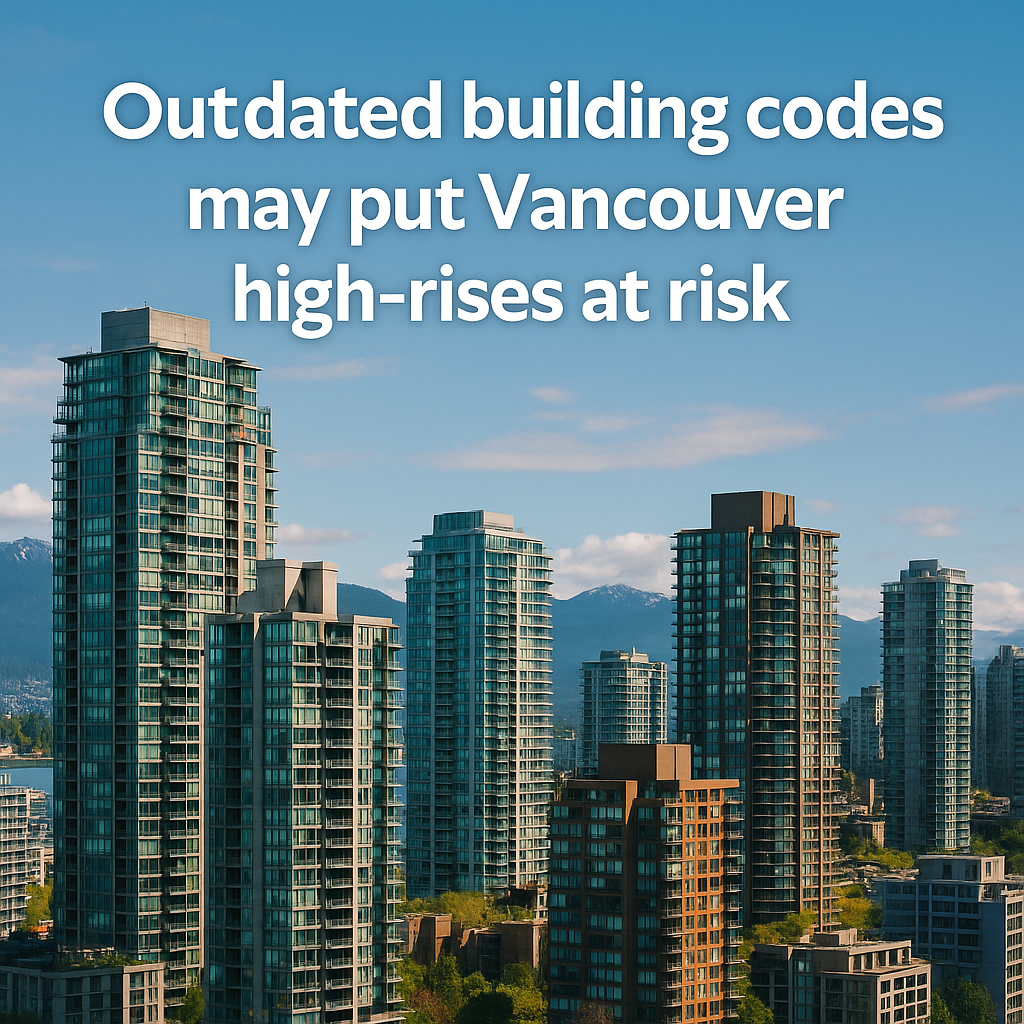
By Elke Porter | WBN News Vancouver | May 6, 2025
Vancouver’s skyline may be more vulnerable than it looks. A recent study led by researchers at the University of British Columbia warns that high-rise concrete buildings in Metro Vancouver are at serious risk if a major earthquake strikes — and science says it will. Every 500–600 years on average, the Cascadia Subduction Zone unleashes a massive quake, with intervals ranging from 200 to over 1,000 years. The last one hit 325 years ago. The next is not a question of “if” but “when.”
Using advanced simulations, scientists found that Metro Vancouver’s building codes severely underestimate seismic hazards — especially for high-rises built before 1990. These buildings, many of them concrete towers from the '60s and '70s, weren’t designed for the unique risk posed by the region’s soft Georgia sedimentary basin, which amplifies long-period seismic waves. That makes tall buildings sway more — and fall harder.
UBC professor Carlos Molina Hutt and his team used 3D simulations of a hypothetical magnitude-9.0 Cascadia quake — the “M9 scenario” — to see how modern and older buildings would fare. The results? Older high-rises are significantly more vulnerable to collapse than newer, code-compliant ones.
Unlike California, Vancouver doesn’t require old buildings to be retrofitted. Updating all at-risk structures would be complex and costly. But Molina Hutt emphasizes the urgent need for awareness — and policy change. A 2024 City of Vancouver report estimated that a magnitude 7.2 quake could damage 6,100 buildings, particularly older concrete high-rises, and displace a third of residents. In response, city councillors were set to consider a comprehensive seismic risk reduction strategy for 2025, focusing on retrofitting vulnerable buildings and potentially updating the Vancouver Building Code to require more stringent designs.
The truth is hard to ignore: Vancouver is overdue for a catastrophic earthquake. And thousands of residents live in towers built before seismic science advanced. Experts like Perry Adebar have emphasized that public misconceptions about building codes (e.g., assuming all new buildings are “earthquake-proof”) and the lack of mandatory seismic inspections for existing private buildings are major issues.
Call to Action: If you live in a high-rise built before 1990, it may be time to consider relocating. Waiting for the “Big One” could mean waiting too long. Ask your building manager about seismic assessments. Push local leaders to act. Lives — including yours — depend on it.
#Vancouver Earthquake #Building Safety #Seismic Risk #Earthquake Preparedness #BC Real Estate #Urban Planning #Disaster Readiness #Cascadia Quake #WBN News Vancouver #Elke Porter
Elke at Westcoast German Media or on LinkedIn: Elke Porter or contact her on WhatsApp: +1 604 828 8788


